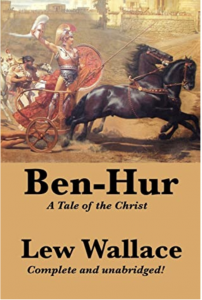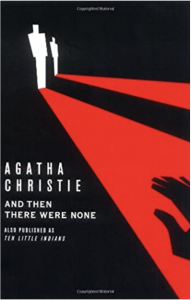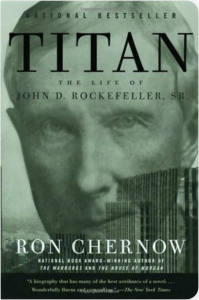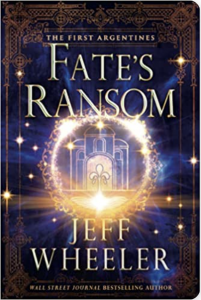C.A. Gray's Blog, page 31
March 29, 2022
Review of Ben-Hur

I can’t believe I’d never read this before! Such a gem! It reminded me a great deal of “The Count of Monte Cristo” at least for the first half or so, since the theme of betrayal and revenge drove the plot. But after that, the story abruptly changes course. It’s interesting that it’s billed as “A Tale of the Christ,” since Jesus has only a few short cameos, though He ends up being a primary motivator for the second half of the story.
The book opens with a retelling of Jesus’ birth, from the perspective of the three wise men. Then it skips ahead some 20 years in time.
Judah Ben-Hur is a Jew living in first century Rome, and he’s a contemporary of Jesus, of about the same age. We meet his betrayer in the same scene where we meet Ben-Hur himself: a Roman called Messala who grew up with him, but who now has ambitions that require him to leave his old friend behind. He unequivocally insults and humiliates Ben-Hur in their farewell encounter, so that he can climb the ranks of the Roman military. Rome’s new governor rides into Judea with pomp and circumstance, and Judah and his sister watch the procession from their magnificent roof–only a roof tile dislodges and happens to fall on the new governor’s head. He’s only knocked out, but Messala seizes upon the opportunity to make Ben-Hur out to be a militant Zionist who will lead a revolution against Rome. Ben-Hur is sent to be a slave where he is expected to die in service, first in mine shafts and then rowing on a battleship. But his determination to live, to return, and to pay Messala back keeps him going. A series of unlikely events transpires in which Ben-Hur saves a titled Roman from a sinking ship, and said Roman is so grateful that he adopts Ben-Hur as his son. Not only is he no longer a slave at that point, but he is wealthy again too.
With his new Roman name, Ben-Hur returns incognito to reclaim the inheritance stewarded for him by his family slave, Simonides. The former slave has a beautiful daughter named Esther who falls in love with Judah, but it’s unrequited (at least for much of the story). Simonides and Esther are also in contact with one of the wise men at the opening of the story, who has an Egyptian daughter named Iras whom Ben-Hur loves instead. Judah is desperate to know what happened to his mother and sister in all his years away, but can’t seem to learn the answer–no one will speak of them. Meanwhile, a sheik conscripts Ben-Hur to drive his horses in an upcoming chariot race against Messala and others, which is probably the most famous scene in the film, at least. Of course Ben-Hur wins, and in the process Messala is not only beggared but also crippled. He sends assassins, whom Ben-Hur wins over to his side.
I suppose one of the definitions of an epic is that the story spans a great deal of time and doesn’t follow a single plot line. Eventually after Ben-Hur has essentially succeeded in his triumph over Messala–which is all but over after the chariot race, oddly enough–he turns his sights instead to becoming the very thing Messala accused him of being: a revolutionary. The Jews expected that the Messiah would come as an earthly king, and many of them assumed that He would overthrow Rome then and there. Judah decided that he would use his power, influence, and wealth to train an army to follow Jesus the moment He decided to declare Himself king. Unfortunately for Judah, that was not Jesus’ mission.
Ben-Hur’s mother and sister, meanwhile, were thrown into prison in further punishment for his supposed insurrection, where they became lepers. They were eventually released from prison, but continued to live in the leper colony. A loving servant learned that Jesus healed lepers, though, and brought them to Him just as He was entering Jerusalem on Palm Sunday. The scene where Jesus heals them, I think, was the best part of the whole book–it brought me to tears. So even though Judah suffers the terrible disappointment that Jesus wasn’t going to do what he’d hoped, after the crucifixion, Judah is reunited with his mother and sister, who are now whole.
It’s a bit weird to me that the story ends there, and not at the resurrection. But I suppose Wallace thought the story is Judah’s, and not the gospel story. He wasn’t likely to renew his expectation that Jesus would become an earthly king post-resurrection, so why tell that part, when the readers all know what happens next anyway? It still felt a little weird, but I can see why he made that choice.
Regardless, a fantastic epic!
My rating: *****
Language: none
Violence: present but not gratuitous (although the description of leprosy was a bit much)
Sexual content: none
Political content: none
The post Review of Ben-Hur appeared first on C.A. Gray.
March 25, 2022
And Then There Were None, Agatha Christie
Today’s podcast comes from this blog review of And Then There Were None
The post And Then There Were None, Agatha Christie appeared first on C.A. Gray.
March 21, 2022
Review of Starflight

This was a fun read! It reminded me a lot of the Lunar Chronicles, and particularly of Cinder.
Solara is an orphaned teenage mechanic living in an intergalactic universe – hence the connection in my mind to Cinder. In this world, misdeeds are tattooed across the knuckles so that all the world can see them; Solara trusted the wrong boy in the past, and now finds herself marked. This dims her already poor prospects. She was a great student, but was expelled from flight school as a result. Then in a desperate situation, she finds herself indentured as a servant to the boy in her class who hated and mocked her the most. But she needs her passage paid for, so she puts up with it, distasteful as it may seem.
Doran, said boy turned master, starts out a miserable rotten human being, so it takes a good deal of suspension of disbelief to buy that he’ll eventually become the love interest. People rarely change that completely, that fast. The inciting incident of their adventures together is when Doran threatens to drop her off-world at a place where she’s very likely to starve to death or be sold into prostitution, which it’s kind of hard to forgive him for later. A semi-deux ex machina moment saves Solara from this fate: she turns out to have the perfect weapon on her for just such an eventuality, one that happens to wipe Doran’s memory. But, Solara realizes, in order for her escape plan to work, she’ll have to take Doran with her.
While he’s thus incapacitated, Solara convinces him that he was the servant and she the master. They barter passage onto a ship of misfits that reminds me intensely of “Firefly” (another reason to love the story). What follows is a madcap romp across the universe with ever-increasing stakes as Solara, Doran, and the crew accumulate enemies. Meanwhile, of course, Solara and Doran fall in love. Plot twists worthy of a soap opera top it all off, but the prose is so lighthearted that I’d probably have gone with nearly anything by the end.
My rating: ****
Language: none
Violence: present but not gratuitous
Sexual content: present but not gratuitous
Political content: none
The post Review of Starflight appeared first on C.A. Gray.
March 18, 2022
Titan by Ron Chernow
Today’s podcast comes from this blog review of Titan.
The post Titan by Ron Chernow appeared first on C.A. Gray.
Review of And Then There Were None

As murder mysteries go, this has to be one of the best. I guess that’s why it’s one of the top selling murder mysteries of all time. And what a title! Absolutely perfect, though I understand that until recent decades it was called “Ten Little Indians.” I see why, from the story, but that’s nowhere near as compelling.
The concept is a bit contrived and gimmicky, but that’s ok, since it’s set up from the get-go, so the reader can suspend her disbelief on just that one point. The story takes place on an isolated and sometimes impassable island of bare rock, with only one large manor house on the whole thing. It was once owned by a celebrity, so it was in the gossip columns before it was purchased by one U.N. Owen. This person, in writing, invited ten strangers to the island. Given the language of the letter sent to each and the intrigue of the place itself, they all came… but then the host was nowhere to be found. On the first night, a gramophone recording indicts all ten of them for a murder they committed, though each was done in such a way as to make it impossible for them to ever be convicted for it in a court of law. The place is called Soldier Island, and a centerpiece of the dining table downstairs shows ten little china Indians. In each room is printed the morbid Ten Little Indians poem, in which each Indian dies in a different way.
Then, the guests begin to die–and in ways that fit the poem perfectly. At first it might be accidental, but as soon as two of them have died, they realize it isn’t. They search the island thoroughly, realize that no one is there but themselves, and put together that U.N. Owen, the murderer, must in fact be one of them.
I read this aloud with my husband and we raced through it. Christie’s prose is very simple, her sentences short. She says only what needs to be said and not a bit more–there’s no flowery descriptions, and she saves any exposition of the characters’ back stories for when it absolutely needs to be told. I can see why she’s one of the best selling authors of all time.
My rating: ****1/2
Language: none
Violence: present, but even though some were gruesome, they were “polite” as far as the description that made it on to the page
Sexual content: none
Political content: none
The post Review of And Then There Were None appeared first on C.A. Gray.
March 11, 2022
Fate’s Ransom by Jeff Wheeler
Today’s podcast review comes from this blog review of Fate’s Ransom.
The post Fate’s Ransom by Jeff Wheeler appeared first on C.A. Gray.
March 10, 2022
Review of Titan: The Life of John D. Rockefeller, Sr

Chernow is quickly becoming one of my favorite historians! While I realize that nearly every author probably can’t help but include some element of “spin,” the depth and detail of his research helped to convince me that he was as intellectually honest as he could possibly be with the evidence available.
I went in to this biography with a preconceived notion of John D Rockefeller, Sr; I thought he was a greedy scoundrel who was more or less responsible for the state of modern medicine as we know it: specifically, “sick care” which involves treating symptoms with drugs that suppress and cause a myriad of other problems, rather than trying to get to the root cause and heal the patient. I believed, based on what I had heard, that he was not content with the billions he had made in Standard Oil and the railroads, and that the Flexnor Report of 1910 was his attempt to squash all competition and achieve a complete monopoly in medicine, too.
As I listened to the story of his very difficult upbringing, with a bigomist charlatan father who abandoned his mother and the family, I felt sorry for John. I admired his hard work and determination to pull himself up by his bootstraps and make something of himself despite his background, and his bent toward philanthropy even from an early age, when he had very little to give away. He was an extremely devout Baptist, with vision and conviction that God would prosper him not for his own sake, but so that he could be a blessing to the world. Of course his strict Baptist views had their down sides–he was a bit of a Pharisee, not only in his own life but in how he raised his family too–but Chernow convinced me that he was genuine.
As Chernow chronicled Rockefeller’s rise in the business world, the creation of Standard Oil, etc, I kept waiting for the turning point, when Rockefeller would turn “to the dark side.” I was confused when it just didn’t come. He was cutthroat, surely, and he did drive competitors out of business and form a decided monopoly–even though he did what he could to make it look like he hadn’t. He’d purposely allow a few little minor competitors to survive so that when accused of monopoly, he could point to them like a fig leaf and claim, “no I haven’t, see?” But, so far as I could tell, nothing he did was truly illegal. And meanwhile, he was always personally extremely generous. His terrible reputation seems to have stemmed almost entirely from a journalist with a personal vendetta against him because she blamed him for her father’s death, due to the father’s working conditions. Ida Tarbell published a series of exposes in a newspaper that captured the entire world’s attention, in a serial style like one of Charles Dickens’ novels. During that time, Rockefeller became one of the most hated men in the world. Some of what Tarbell wrote about him was true, but some were misleading “spin” and outright lies. I found myself sympathizing with Rockefeller and his family as the stress of this took its toll on their health.
Still, I waited to hear how Rockefeller became the founder of the monopoly of allopathic medicine, particularly since it was mentioned on several occasions that when he faced his own health challenges, he was partial to osteopathy, homeopathy, herbal medicine, and natural cures. It wasn’t until he was well into retirement that he ventured into the medical arena, and he did so as a philanthropist, not as a business venture. He also did not do so personally; his charitable giving had long become such a monumental undertaking that he hired Frederick T. Gates (no relation to Bill; I checked) to distribute his wealth and decide where the money should go. The focus on medicine was Gates’ idea. Gates, too, was the one who had a bone to pick with homeopathy; Rockefeller himself always preferred it and found himself overruled by his various boards when his own ventures helped to crush the chiropractic, osteopathic, and homeopathic colleges around the world. At the same time, I can almost see why that happened, and there was some justification for it. There was no standardization of medical learning, and many of the schools had very substandard education and little to no entrance requirements. The idea of requiring a certain standard seemed a good one. I suppose, like anything else, the question then becomes–who decides what those standards are? And what’s their incentive to do so? A good idea can easily be corrupted when men’s own self-interests get involved.
Ultimately, Chernow succeeded in changing my perspective on Rockefeller. I don’t see him as a villain anymore. I think he was a flawed man, of course, but he had many admirable qualities and he overcame a great deal of hardship both in his youth and later, when his wealth made it seem as though everyone wanted his pocketbook rather than himself. The way Chernow tells it, Rockefeller managed his extreme wealth and all the pitfalls that come with it better than most would have done, in a similar position.
My rating: ****1/2
Language: none
Violence: none
Sexual content: none
Political content: none
The post Review of Titan: The Life of John D. Rockefeller, Sr appeared first on C.A. Gray.
March 4, 2022
The Time Machine and The Invisible Man, HG Wells
Today’s podcast comes from this blog review of The Time Machine and The Invisible Man.
The post The Time Machine and The Invisible Man, HG Wells appeared first on C.A. Gray.
February 28, 2022
Review of Fate’s Ransom

Ugh! Wow. I have strong feelings about this one, both good and bad…
I’ve invested a lot of time in Ransom, the hero of this tale, since this is the fourth and final book. On one hand, all of Wheelers’ stories tend to feel quite similar, as do his heroes… but that’s kind of what keeps me coming back. He’s one of VERY few modern authors who writes real heroes anymore. His main characters have true integrity based upon something larger and more important than themselves and their own desires. Lord Ransom serves The Fountain (God), and because of his loyalty to do the Fountain’s bidding, he also stands by his oath to serve the Argentine line, kings who wear the Hollow Crown–no matter what. This is THE defining trait which drives Ransom’s every decision. And it’s tested throughout this entire story.
This last installment opens with the death of the previous king at the hands of the almost all-powerful poisoner, Alex. With his dying breath, the Argentine king told Ransom that he wanted his brother, Jon-Landon, to be his successor. Unfortunately, Jon-Landon is evil, and Ransom and everyone else knows it. But, because Ransom has vowed to serve the Argentines and that is his king’s dying wish, he makes the king’s choice known–and feels the Fountain’s approval for it. The Hollow Crown goes to Jon-Landon, who turns out to be every bit as capricious, selfish, and wicked as everyone anticipated. He also envies Ransom, and sets him up for failure at every turn, tempting him into betrayal. But the Fountain makes it clear to Ransom that he must continue to serve Jon-Landon–not for his own sake, but for that of his son Devon. Devon must be the next king, and if they depose Jon-Landon, the entire kingdom will fall.
I so appreciated this higher perspective of what was going on in the action of the story, because it told me exactly what I could expect (in part because I’ve read so many of Wheeler’s stories now). I knew Ransom would be sorely tempted, but would stand firm and maintain his integrity, no matter the cost. I knew that because of it, even though it would look like his loyalty continued to enable a wicked regime, the Fountain saw more than he did, and his faithful service would turn out to be the only possible way forward. All Ransom had to go on was his trust in the Fountain, yet the reader knows that his trust is well-placed. I also anticipated that Wheeler would redeem even Jon-Landon: that Ransom’s goodness would prick his conscience, win his affection, and ultimately change him into a better man by the end. I was not disappointed in this.
But. BUT! About 3/4 through the book, the foreshadowing of a sad ending for Ransom started to come fast and furious. I hate sad endings, so I started to emotionally detach on purpose, but I still had to finish it (I’d come this far, after all). Then I thought, the foreshadowing is SO thick, perhaps it’ll be thwarted after all? Perhaps Wheeler is just setting us up to expect one thing, and then there will be a sudden loophole that will make everything all right? Maybe???
Nope.
I knocked off a star for the emotional trauma.
My rating: ****
Language: none
Violence: fantasy only
Sexual content: none
Political content: none
The post Review of Fate’s Ransom appeared first on C.A. Gray.
February 25, 2022
The Reckoning, James Byron Huggins
This week’s podcast comes from this blog review of The Reckoning.
The post The Reckoning, James Byron Huggins appeared first on C.A. Gray.



